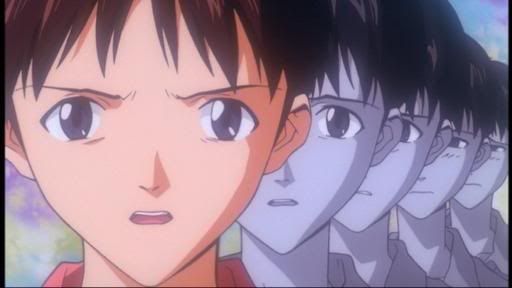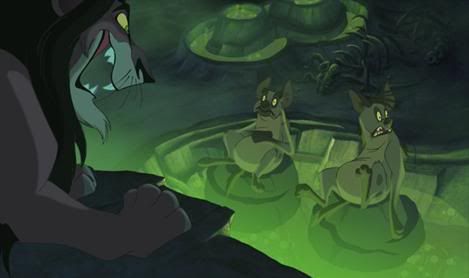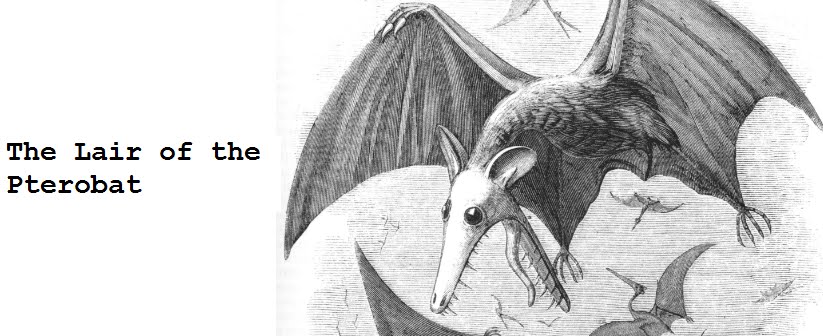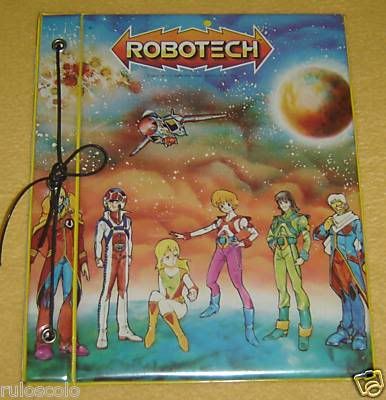
After experiencing nerd-rage for myself, I've figured out the obvious: it's no shame to feel it, just a shame to be obnoxious about it. Having an issue with changes made to media by the creators isn't petty by itself; you just don't have to overreact.
In one case, though, I've let fan reaction amplify what should otherwise be a very low-level issue. Unlike a lot of anime fans, I wasn't that impressed with the first two Rebuild of Evangelion movies, the proposed four-film retelling of the popular anime series
Neon Genesis Evangelion. This came from a combination of finding them choppy, and, yes, my attachment to the previous anime. I don't expect a truncated movie adaptation to deliver absolutely everything that made me fall in love with the longer series, but I want to feel at least something of what I did for the original series. No dice.
Of particular interest was the portrayal of the protagonist, Shinji Ikari. Though at one time it seemed that nearly every anime fan hated him, he's become one of my favourite fictional characters ever, with the only thing still bothering me being that one incident in the beginning of
End of Evangelion.
However, it was a wee bit disturbing that when the first
Rebuild movie, You Are (Not) Alone came out in North America, I found Shinji to be very, very, annoying there, twitching my way through the film. I went back and watched the TV series, and all was right with the world. In this case, I didn't feel the urge to hunt down and kill the film just because it presented a different version of Shinji, especially since I couldn't understand what made him unlikable there. In the case of the second movie, I just found him dull. I could forget it, and move on.
However, a lot of people started saying that
You Are (Not) Alone wrote Shinji better than the TV series, using that all-important phrasing, "more realistically". By the time of the second film,
You Can (Not) Advance, others had added that Shinji was now a "manly" mecha warrior, because he had made an explicit effort to try to rescue another character. Shinji was taking control of his world, moving beyond his despair to achieve the payoff the audience wanted all along.
This managed to turn my opinion of
Rebuild from neutral, to just kind of...having more knee-jerk negative feelings associated with it, because much of what they said was completely the opposite of what I felt.
Saying Rebuild Shinji is "more realistic" was totally baffling, because a great strength of Shinji's original character was his extreme realism, the raw portrayal of emotional breakdown.
The conflict, however, might come from differing views of "realism": In my case, "realism" meant Shinji's characterization showed an aspect of reality in a brutally accurate fashion: the ways that despair and loss can destroy a person inside, so that they don't act the way most believe a hero in popular fiction should.
On the other hand, "realism" can also mean restrained depictions, obedience to the conventional laws of fiction while keeping immersion. If we're going with the second definition, then, I suppose, Shinji in
Rebuild is the more realistic version, but that's not what I think realism is. Shinji's portrayal in Rebuild just lacks the teeth.
But even if I wasn't impressed with Rebuild Shinji, calling him "manly", and treating it like he'd become "hot-blooded" is just too much. He's still just a soft-hearted, gangly, tiny teenager, and the simple fact that he
fights back isn't that radical a change. Even though some of Shinji's fighting in the TV series was attributed to his mecha/mother's "berserker" mode, Shinji was the one who kept attacking in episode 4, who opened Rei's pod in episode 6, who came back in episode 19. The original Shinji was indeed capable of fighting back, and it's not so much of a stretch that he would try to rescue Rei if the opportunity arose. That's what he went back to do, after all.
Rebuild just punches up such scenes with stronger visuals and higher stakes in order to create an effective climax: the idea of Shinji fighting back was not invented whole cloth, and it by itself doesn't change the character as much as others seem to claim.
So, what I'm thinking is that Shinji in Rebuild isn't radically altered like Neo-Exsedol from Macross, but there are still some things missing about him, some loss of quality. I can live with it, but seeing people with the extreme opposite opinion of Shinji, praising this new version as a great improvement, drives down my interest in Rebuild Shinji even more.
I also want to add that it's not bad writing for a character to lack a feel-good payoff for their despair. A story doesn't exist to make readers feel good—it exists to be told, and Shinji Ikari was fascinating enough on his own. His lack of such a payoff isn't a mistake that needs to be corrected, but just the way that Evangelion was.
It might still be possible for the next two Rebuild movies to take down fanss goodwill and put Shinji back on his original crooked path, but I can't see that making a difference to me. My reasons have already been stated and cemented, the opinions of fans has already given me the blues. It's a little nerdy weakness of mine, but it happened because my interest in Rebuild Shinji wasn't that strong to begin with.
Other Rebuild bullshit:
I was actually really looking forward to the first movie, being completely open to enjoying it as it was, while appreciating the series regardless. Oh well; at least there were new merchandising opportunities, though I can't keep up with all of those.
However subjective it might be, I think Rei and Asuka in
You Can (Not) Advance had their flaws toned down and made "cute". These days I'm aware that female characters may be flawed only for the purpose male audience infatuation, but I've always clung to the notion that Rei and Asuka, though sexualized, had genuine faults and deeply disturbing aspects, that it wasn't all there for the fanboys or meant to be endearing. Seeing them acting nicer/being more comical was a little bit disturbing, though without the emotional connection that I have to Shinji. Like the portrayal of Shinji, it means they are defanged, and greater apparent "positivity" doesn't mean the characters are more appealing or better written.
Some of the new Angels did look really cool, and were the things that excited me the most.
Saying that I hate Mari would be too strong. Rather, it's just that I don't like her. I don't see a need for her, and am disappointed that she's not screwed up in the way Evangelion characters usually are. Yeah, being a nut for fighting and sniffing Shinji like a dog might make her a fine candidate for insanity in any other series, but it's different from the emotional instability usually shown in Evangelion, and I can't help but feel the loss. And maybe, her
not being a secret emotional powder keg is the point, but being a contrast to the other pilots doesn't make her interesting by herself. This all adds up to Mari not feeling like a "real" character at all, just someone tacked on.



